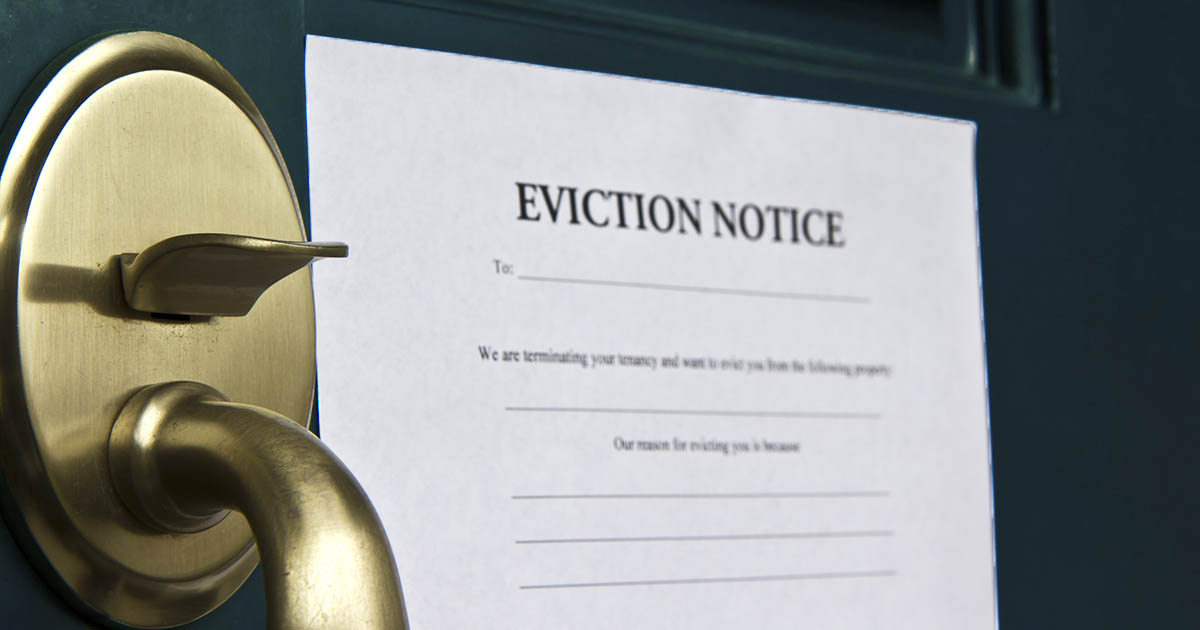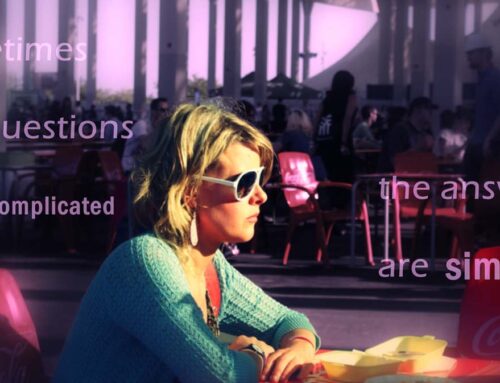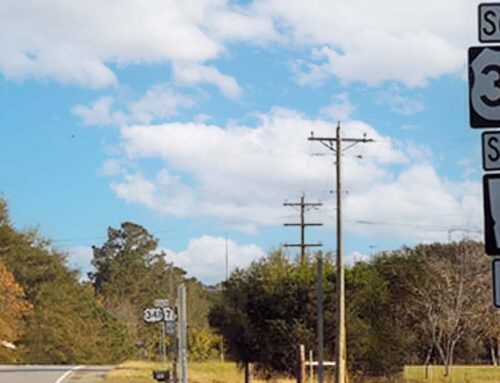If you’re facing financial hardships, filing for bankruptcy might seem like a way to halt an eviction. In many cases, bankruptcy’s automatic stay can temporarily “pause” certain legal actions, including some evictions.
But there are specific scenarios where bankruptcy protections don’t apply, leaving you vulnerable to eviction even after filing.
Let me walk you through when bankruptcy may not stop an eviction and what you need to know about the limitations of the automatic stay.
Understanding the Automatic Stay and Its Role in Bankruptcy
What Is an Automatic Stay?
The automatic stay is a legal “pause” that goes into effect when you file for bankruptcy. It stops most collection actions against you, including phone calls from creditors, lawsuits, and foreclosure actions.
For many people, this stay provides temporary relief and a chance to work on a financial plan.
Does Filing Bankruptcy Stop Eviction?
In some cases, filing for bankruptcy can delay an eviction by activating the automatic stay. However, there are specific exceptions in eviction cases.
Depending on your situation, the bankruptcy court may allow an eviction to proceed despite the automatic stay.
Why the Automatic Stay Doesn’t Always Protect Against Eviction
While the automatic stay aims to give you breathing room, certain exceptions exist, especially for evictions. Landlords retain rights to their property, and public safety concerns mean some cases fall outside the stay’s protections.
This includes cases involving illegal activity or property damage, which may allow a landlord to proceed with eviction.
Limitations of the Automatic Stay for Tenants Facing Eviction
Prior Eviction Judgments
If your landlord has already obtained a court judgment for possession before you file for bankruptcy, the automatic stay generally does not stop the eviction.
In these cases, the bankruptcy court typically views the eviction process as already legally complete, leaving little room for intervention.
Illegal Activity on the Property
If you’ve been involved in illegal activities on the rental property, such as drug use or production, you don’t receive automatic stay protections for eviction.
The law prioritizes safety and community welfare in these instances, allowing landlords to continue eviction proceedings despite the bankruptcy filing.
Property Damage
If you’ve caused significant damage to the rental property, the automatic stay won’t prevent the landlord from evicting.
Property damage poses a financial risk to your landlord, and bankruptcy protections don’t extend to such cases.
Tenant Screening Services and Eviction Records
It’s important to note that filing for bankruptcy will not erase an eviction from tenant screening services.
While bankruptcy may help clear certain debts, it does not remove eviction records, which may impact future rental applications.
Types of Bankruptcy and Their Impact on Eviction
Chapter 7 Bankruptcy and Eviction
In Chapter 7 bankruptcy, your assets are liquidated to pay off debts. This form of bankruptcy provides limited protections against eviction.
If there’s a prior eviction judgment or if illegal activities or property damage are involved, Chapter 7 will not prevent eviction.
Can My Landlord File Eviction if I’ve Filed for Chapter 7? Yes, your landlord can file for eviction during Chapter 7 bankruptcy if there’s already a judgment for possession or if you’ve been involved in illegal activities or property damage.
Chapter 13 Bankruptcy and Eviction
Chapter 13 allows for a repayment plan, which may help you catch up on overdue rent and possibly avoid eviction if your landlord agrees.
This type of bankruptcy offers a pathway to repay back rent over time, but it’s not guaranteed protection from eviction.
Can You Be Evicted While in Chapter 13? Yes, eviction is still possible during Chapter 13 if your landlord has grounds to evict, such as prior judgment, illegal activity, or significant property damage. However, a repayment plan may offer an alternative to eviction if your landlord is willing to accept the back rent over time.
Can Bankruptcy Prevent You from Moving if You’re Being Evicted?
If I Am Getting Evicted, Will Bankruptcy Prevent Me from Moving?
Bankruptcy rarely provides a permanent solution to stay in a rental. Even if the automatic stay temporarily delays an eviction, you may still need to move if your landlord has a valid eviction claim or if the court grants the landlord relief from the stay.
Can I File Bankruptcy to Stop or Delay an Eviction?
Bankruptcy can delay an eviction temporarily, but it’s not always an effective or long-term solution. If you have a prior eviction judgment or are facing eviction due to illegal activities or property damage, filing for bankruptcy typically won’t prevent eviction.
Landlord Actions to Evict a Tenant During Bankruptcy
What Does a Landlord Need to Do to Evict Me While I’m in Bankruptcy?
If your landlord wishes to proceed with eviction while you’re in bankruptcy, they can request “relief from the automatic stay” from the bankruptcy court.
Your landlord must show valid reasons for the eviction, such as a prior judgment or serious property issues, to obtain court permission.
How Quickly Can a Landlord Proceed with Eviction?
The timeline depends on how quickly the court grants relief from the stay, allowing your landlord to proceed with eviction.
This process varies by case, but landlords can often act swiftly if there’s a prior judgment or serious cause for eviction.
Practical Guidance if You’re Facing Eviction During Bankruptcy
What to Do if You’re Facing Eviction and Considering Bankruptcy
If you’re considering bankruptcy to address eviction, consult with a bankruptcy attorney. They can help assess your options, explain your rights, and evaluate whether Chapter 13 may allow you to catch up on rent.
It’s essential to understand both bankruptcy protections and their limits in eviction cases.
When to Seek Legal Assistance
If you’re facing eviction, consider consulting a bankruptcy or tenant rights attorney. Professional guidance is especially important if you’re in Chapter 13 and hoping to use a repayment plan to stay in your home.
Your Next Steps: Protecting Yourself Against Eviction
While bankruptcy provides financial relief, it has clear limitations when it comes to stopping eviction. Bankruptcy protections may not apply to cases involving prior judgments, illegal activities, or property damage.
Understanding these exceptions can help you make informed choices, and if necessary, you may want to consult a professional to explore other resources or legal options that might help you avoid eviction.
ABOUT THE AUTHOR
Meet Jay
 Since I became a lawyer in 1995, I’ve represented people with problems involving student loans, consumer debts, mortgage foreclosures, collection abuse, and credit reports. Instead of gatekeeping my knowledge, I make as much of it available at no cost as possible on this site and my other social channels. I wrote every word on this site.
Since I became a lawyer in 1995, I’ve represented people with problems involving student loans, consumer debts, mortgage foreclosures, collection abuse, and credit reports. Instead of gatekeeping my knowledge, I make as much of it available at no cost as possible on this site and my other social channels. I wrote every word on this site.
I’ve helped thousands of federal and private student loan borrowers lower their payments, negotiate settlements, get out of default and qualify for loan forgiveness programs. My practice includes defending student loan lawsuits filed by companies such as Navient and National Collegiate Student Loan Trust. In addition, I’ve represented thousands of individuals and families in Chapter 7 and Chapter 13 bankruptcy cases. I currently focus my law practice solely on student loan issues.
I played a central role in developing the Student Loan Law Workshop, where I helped to train over 350 lawyers on how to help people with student loan problems. I’ve spoken at events held by the National Association of Consumer Bankruptcy Attorneys, National Association of Consumer Advocates, and bar associations around the country. National news outlets regularly look to me for my insights on student loans and consumer debt issues.
I’m licensed to practice law in New York and California and advise federal student loan borrowers nationwide.
continue reading





